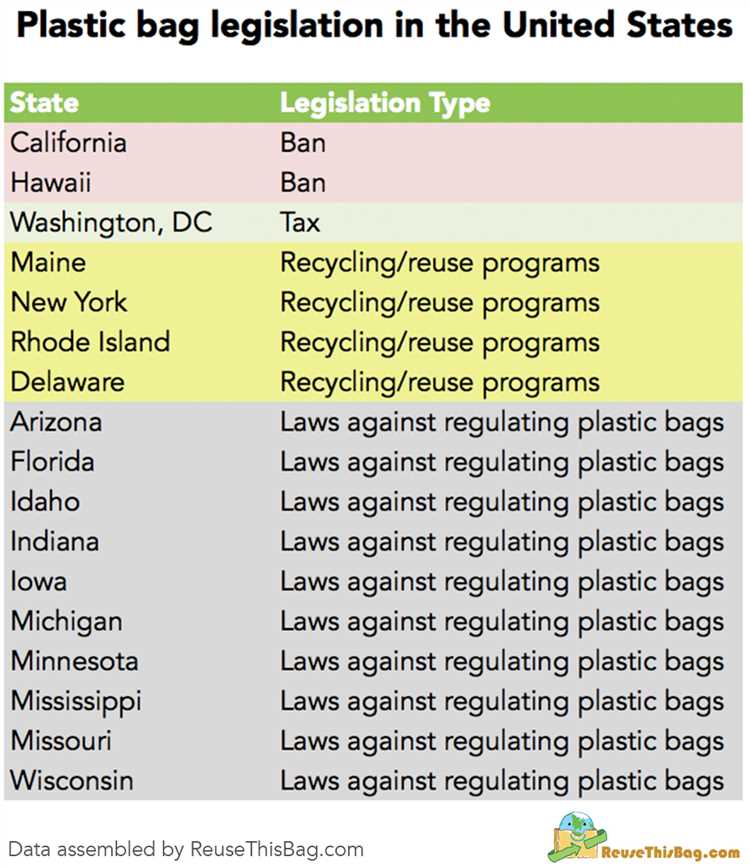
Plastic pollution has become a global environmental crisis, with plastic bags being a major contributor. These lightweight, non-biodegradable bags are causing significant harm to our oceans, wildlife, and ecosystems. In response, many countries around the world have implemented plastic bag bans as a way to reduce plastic waste and protect the planet.
One country that has been leading the way in plastic bag bans is Rwanda. In 2008, Rwanda became the first country in the world to ban plastic bags completely. The government took a proactive approach to tackle the issue, recognizing the devastating impact plastic bags were having on the environment. Today, Rwanda is considered a model for other nations looking to implement similar bans.
Rwanda’s plastic bag ban has had a significant positive impact on the country’s environment. The ban has not only reduced plastic waste but also helped to improve the cleanliness of cities and rural areas. Instead of plastic bags, Rwandans have embraced alternative options such as reusable bags, paper bags, and banana leaf packaging.
The success of Rwanda’s plastic bag ban has inspired other countries to follow suit. Many African nations, such as Kenya, Tanzania, and South Africa, have implemented their own bans, taking inspiration from Rwanda’s model. In addition, countries across the globe, including France, Italy, and Australia, have also introduced legislation to restrict or ban plastic bags in an effort to combat plastic pollution.
In conclusion, Rwanda stands out as a pioneering country in the fight against plastic bag pollution. Its complete ban on plastic bags has demonstrated the significant impact that such measures can have on reducing plastic waste and protecting the environment. As other countries continue to implement similar bans, Rwanda’s leadership provides inspiration and hope for a cleaner, greener future.
- Plastic Bag Bans: Who’s Leading the Charge?
- Rwanda: The Pioneer of Plastic Bag Bans
- Kenya: Taking Strong Measures to Combat Plastic Bags
- Australia Implements Bold Plastic Bag Ban Policy
- European Union Takes a Stand Against Single-Use Plastic Bags
- Key Measures Implemented
- Success and Impact
- The Future
- Rwanda Sets an Example with One of the World’s Toughest Plastic Bag Bans
- Strict Regulations and Enforcement
- Promotion of Eco-friendly Alternatives
- New Zealand’s Progressive Approach to Reducing Plastic Bag Waste
- India’s Expansive Efforts to Curb Plastic Bag Usage
- Ban on Thin Plastic Bags
- Promotion of Reusable Bags
- Can the United States Catch Up in the Fight Against Plastic Bags?
- The Role of Local Communities
- The Need for a National Strategy
- Q&A:
- Which country has implemented the most comprehensive plastic bag ban?
- What are the benefits of implementing a plastic bag ban?
- How do plastic bag bans affect businesses?
- Are there any countries that have not implemented any form of plastic bag ban?
- What challenges do countries face when implementing a plastic bag ban?
- Which country is leading the way in plastic bag bans?
Plastic Bag Bans: Who’s Leading the Charge?
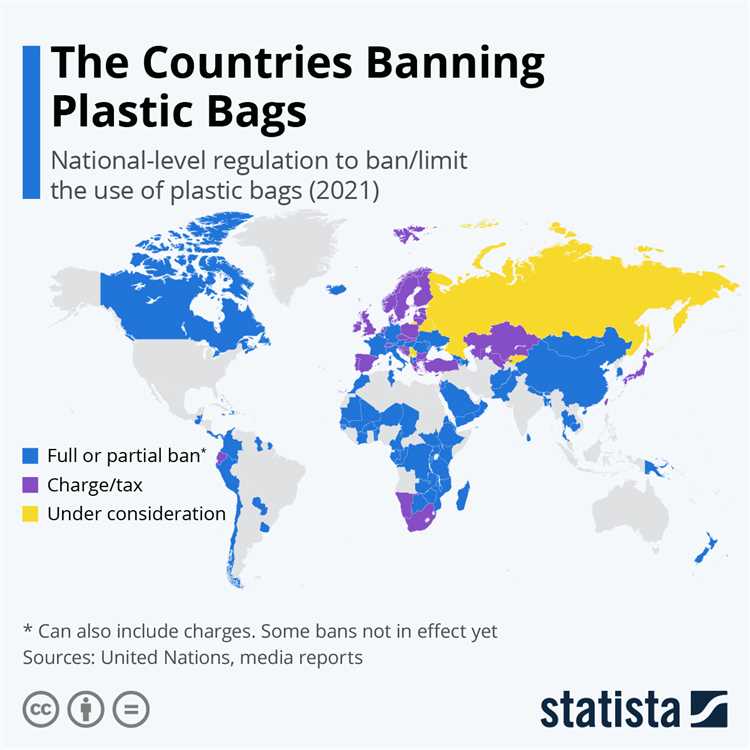
Plastic bag bans have become a worldwide movement as governments and organizations take action to reduce litter and environmental harm caused by disposable plastic bags. While many countries have implemented various regulations and restrictions on single-use plastic bags, some have emerged as leaders in the fight against plastics.
Rwanda: The Pioneer of Plastic Bag Bans
Rwanda is often hailed as a pioneer in banning plastic bags. In 2008, the country implemented a nationwide ban on non-biodegradable plastic bags, becoming one of the first countries in the world to take such a bold step. The ban included not only the manufacturing and importation of plastic bags but also their use and sale.
Rwanda’s commitment to the environment and sustainability has led to significant improvements. The country has experienced a cleaner landscape, reduced plastic waste, and increased awareness about the harmful effects of plastic bags on the environment.
Kenya: Taking Strong Measures to Combat Plastic Bags
Kenya took a monumental step in 2017 by imposing one of the world’s strictest plastic bag bans. The country introduced heavy fines and imprisonment for the production, sale, and use of plastic bags. The ban has resulted in a remarkable decrease in plastic bag litter, as well as increased investments in alternative packaging solutions.
Kenya’s plastic bag ban has inspired other African countries to follow suit, creating a domino effect across the continent. It has also sparked global recognition and encouraged other nations to take stronger actions against single-use plastic bags.
These are just two examples of countries that are leading the charge in plastic bag bans. Other countries, including Australia, France, and Taiwan, have implemented their own regulations and restrictions on plastic bags, each making significant strides in reducing plastic waste and promoting sustainable practices.
As the world’s understanding of the environmental consequences of plastic bags grows, more countries are likely to join the movement and adopt measures to combat plastic pollution. With collective efforts, we can create a cleaner and more sustainable future for generations to come.
Australia Implements Bold Plastic Bag Ban Policy
Australia has taken a bold step in the fight against plastic pollution by implementing a nationwide ban on single-use plastic bags. The ban, which took effect on July 1, 2018, has been hailed as one of the world’s most comprehensive and ambitious plastic bag policies.
The new policy aims to reduce the use of plastic bags and encourage consumers to switch to reusable alternatives. Under the ban, lightweight plastic bags with handles, commonly distributed at supermarkets and other retail outlets, are no longer available to customers. This includes both biodegradable and compostable bags. However, certain types of thicker plastic bags, such as those used for packaging fruit and vegetables, are still allowed.
Australia’s decision to implement a nationwide ban on plastic bags reflects the growing global concern over the devastating impact of plastic pollution on the environment and marine life. Studies have shown that single-use plastic bags can take up to 1,000 years to decompose, releasing harmful chemicals into the soil and water.
The ban has been largely successful in changing consumer behavior and reducing plastic bag usage. According to a report by the National Retail Association, there has been a significant decline in the number of single-use plastic bags used in Australia since the ban was introduced. This has led to a decrease in plastic waste and a positive impact on the environment.
While some critics argue that the ban may inconvenience consumers, many Australians have embraced the change and have adapted to using reusable bags. Supermarkets and retailers have also played a crucial role in the transition by offering affordable and durable reusable bags as alternatives.
Australia’s plastic bag ban serves as an example for other countries to follow in their efforts to combat plastic pollution. By implementing bold and comprehensive policies, countries can contribute to reducing the global plastic waste crisis and protecting the environment for future generations.
European Union Takes a Stand Against Single-Use Plastic Bags
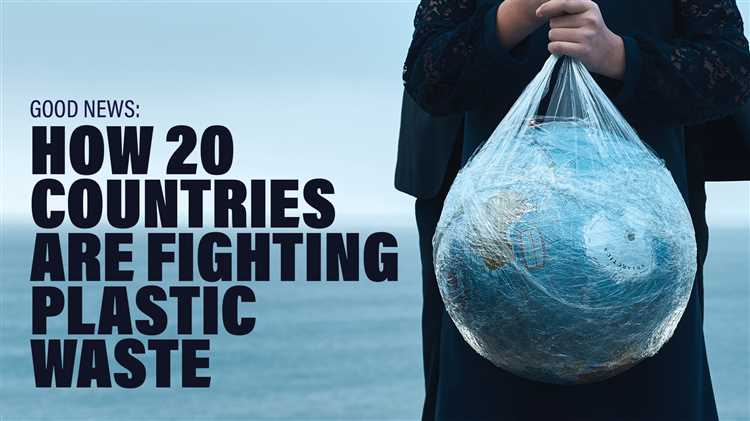
The European Union has been at the forefront of the global movement against single-use plastic bags. Recognizing the negative impact of these bags on the environment, the EU has taken decisive actions to reduce their consumption and promote more sustainable alternatives.
Key Measures Implemented
- The EU introduced the Plastic Bags Directive in 2015, which set targets for member states to significantly reduce plastic bag consumption. The directive aimed for an 80% reduction by 2019 and a 90% reduction by 2025.
- Member states were given the flexibility to achieve these targets through various means, such as imposing fees on plastic bags, implementing outright bans, or promoting the use of reusable bags.
- Additionally, the EU encouraged the promotion of biodegradable and compostable bags as alternatives to traditional plastic bags.
Success and Impact
The EU’s efforts to tackle single-use plastic bags have shown promising results. Many member states have successfully implemented measures to reduce their consumption and have seen a significant decline in plastic bag usage.
According to Eurostat, the statistical office of the EU, in 2018, the average EU citizen used 20 plastic bags per year, compared to 176 in 2010. This represents a remarkable decrease of nearly 90% in just eight years.
The reduction in plastic bag usage has had several positive environmental impacts. It has helped reduce litter and marine pollution, as plastic bags often end up in water bodies, posing threats to marine life.
Moreover, the EU’s commitment to combating plastic waste has also inspired other countries and regions to follow suit by implementing their own bans or restrictions on single-use plastic bags.
The Future
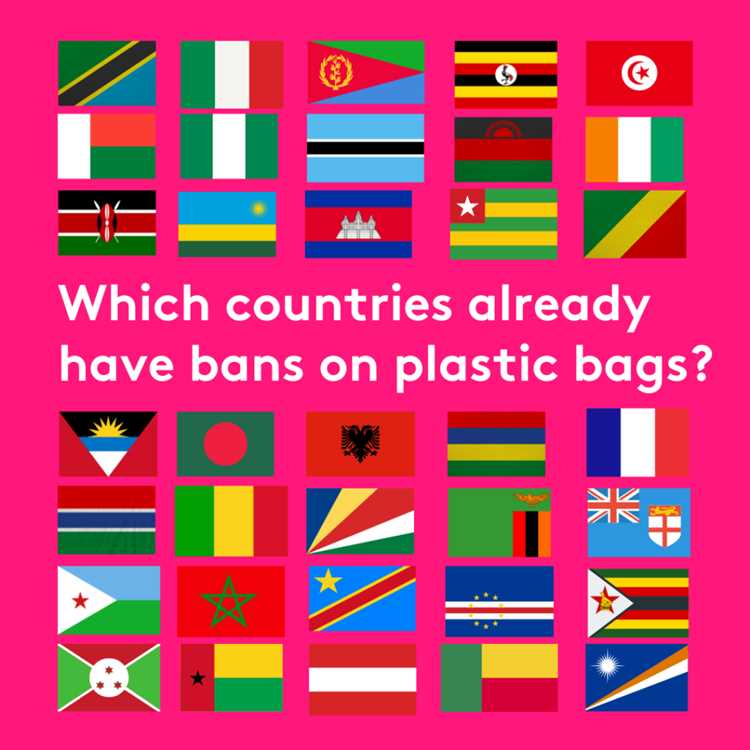
The EU has set even more ambitious targets for the future. The European Strategy for Plastics in a Circular Economy, adopted in 2018, aims to make all plastic packaging on the EU market reusable or recyclable by 2030.
Furthermore, the EU plans to introduce a single-use plastic ban on items such as plastic cutlery, plates, straws, and cotton buds by 2021. This demonstrates the EU’s commitment to tackling plastic pollution at its source and transitioning towards a more sustainable and circular economy.
With the European Union taking a strong stand against single-use plastic bags, it serves as an example and catalyst for global action. The EU’s efforts have showcased the importance of collective efforts to tackle the plastic crisis and pave the way for a more sustainable future.
Rwanda Sets an Example with One of the World’s Toughest Plastic Bag Bans
Rwanda has emerged as a global leader in the fight against plastic pollution by implementing one of the world’s toughest plastic bag bans. In 2008, the African nation took a bold step to protect its environment and public health by imposing a complete ban on the use, production, and sale of plastic bags.
The government of Rwanda recognized the severe impact of plastic bags on the environment, including their contribution to water pollution, blocking drainage systems, and harming wildlife. To combat these issues, they decided to implement a strict policy that would hold individuals and businesses accountable.
Strict Regulations and Enforcement
The Rwandan government introduced strict regulations to enforce the ban. This includes imposing fines, imprisonment, and community service for individuals caught using or selling plastic bags. These penalties have served as a strong deterrent, encouraging citizens to adopt more sustainable alternatives.
Moreover, the government worked closely with local communities, educating them about the dangers of plastic bags and promoting eco-friendly alternatives. This approach helped change public perception and behavior towards plastic waste.
Promotion of Eco-friendly Alternatives
In addition to the ban, Rwanda has actively promoted the use of eco-friendly alternatives to plastic bags. The country set up a national program to encourage the production and use of reusable bags made from fabric or paper. These bags are widely available and affordable, ensuring that citizens have easy access to sustainable options.
Rwanda’s commitment to sustainability extends beyond the ban on plastic bags. The country has also implemented other measures, such as recycling initiatives and waste management systems, to further reduce plastic pollution.
| Key Takeaways |
|---|
| Rwanda has implemented one of the world’s toughest plastic bag bans, prohibiting their use, production, and sale. |
| The government enforces the ban with strict regulations, imposing fines, imprisonment, and community service. |
| Rwanda promotes the use of eco-friendly alternatives, such as reusable bags made from fabric or paper. |
| The country’s commitment to sustainability goes beyond plastic bag bans, with recycling initiatives and waste management systems. |
Rwanda’s success in implementing and enforcing one of the toughest plastic bag bans in the world serves as an inspiration for other nations facing similar challenges. The country’s commitment to protecting the environment and promoting sustainable practices sets an example that can lead to significant reductions in plastic pollution globally.
New Zealand’s Progressive Approach to Reducing Plastic Bag Waste
New Zealand has been at the forefront of global efforts to tackle plastic bag waste. In 2019, the country implemented a nationwide ban on single-use plastic bags, becoming one of the first countries in the world to do so. This progressive approach has made a significant impact on reducing plastic bag usage and waste in the country.
The ban on single-use plastic bags in New Zealand has been widely supported by both the government and the public. Retailers have embraced the ban by offering eco-friendly alternatives such as reusable bags made from sustainable materials like jute or cotton. This has not only reduced the demand for plastic bags but also encouraged consumers to adopt more sustainable shopping habits.
Additionally, the ban has led to a positive shift in public awareness and attitudes towards plastic waste. New Zealanders have become more conscious of the environmental impact of single-use plastics and are actively seeking alternatives. The ban has sparked conversations about the need for further measures to reduce plastic waste in other areas of daily life.
The government has also taken steps to support businesses and individuals in transitioning away from plastic bags. Grants and funding programs have been introduced to assist retailers in implementing sustainable packaging alternatives. Educational campaigns have been launched to raise awareness about the importance of reducing plastic waste and provide practical tips for making eco-friendly choices.
New Zealand’s progressive approach to reducing plastic bag waste serves as a model for other countries around the world. The success of the ban has demonstrated that effective change is possible through the collaboration of government, businesses, and individuals. By implementing similar measures, countries can contribute to a global effort to reduce plastic pollution and protect the environment for future generations.
India’s Expansive Efforts to Curb Plastic Bag Usage
India has emerged as a global leader in the fight against plastic bag pollution, implementing a range of innovative measures to curb usage and promote environmental sustainability. With its massive population and rapid economic growth, India faces significant challenges in managing plastic waste. However, the government and various organizations have taken proactive steps to address this issue.
Ban on Thin Plastic Bags
One of the most impactful measures implemented by India is the ban on thin plastic bags with a thickness less than 50 microns. This ban has been enforced in various states and cities across the country, including Delhi, Mumbai, and Chennai. These thin plastic bags are known for their short lifespan and high potential for littering, causing harm to the environment and wildlife. By implementing this ban, India aims to reduce plastic waste and encourage the use of eco-friendly alternatives.
Promotion of Reusable Bags
India has also launched campaigns to promote the use of reusable bags as a sustainable alternative to plastic. As part of these efforts, the government has distributed millions of cloth bags to citizens and encouraged businesses to offer discounts or incentives to customers who bring their own bags. Additionally, many local communities have established small-scale enterprises that produce and sell affordable reusable bags to reduce dependence on plastic bags.
Furthermore, India has actively encouraged the use of jute bags, which are made from natural fibers and are biodegradable. These bags have gained popularity not only as a plastic bag alternative but also as a source of income for many artisans and farmers across the country.
Overall, India’s expansive efforts to curb plastic bag usage are commendable and serve as a model for other countries facing similar challenges. By implementing bans on thin plastic bags and promoting reusable alternatives, India is taking significant steps towards reducing plastic waste and protecting the environment.
Can the United States Catch Up in the Fight Against Plastic Bags?
The United States, despite being one of the world’s largest consumers of plastic bags, has been relatively slow in implementing nationwide bans or restrictions. However, there are signs that the country is starting to catch up in the fight against plastic bags.
Several states and cities in the United States have taken the lead in implementing their own plastic bag bans and regulations. For example, California became the first state to ban single-use plastic bags in 2014, and since then, many other states, such as Hawaii, Oregon, and New York, have followed suit.
However, these state-by-state regulations can create a patchwork of different rules and regulations, making it difficult for businesses and consumers to navigate. There is a growing need for a comprehensive national approach to addressing the issue of plastic bags.
The Role of Local Communities
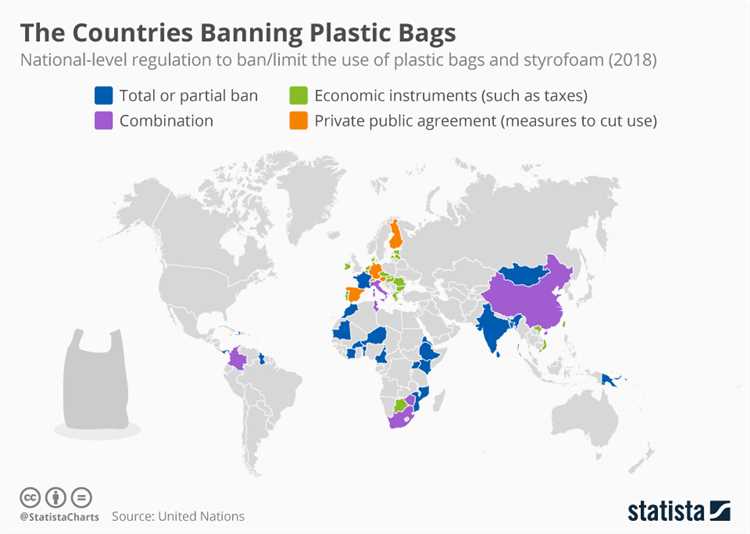
While the federal government has been slow to act, many local communities in the United States have taken matters into their own hands. Cities like San Francisco and Seattle have implemented their own plastic bag bans and have seen a significant reduction in plastic bag usage as a result.
These local initiatives have proven successful in raising awareness about the environmental impact of plastic bags and encouraging reusable alternatives. They have also demonstrated that banning or reducing the use of plastic bags is not only feasible but also beneficial for the community.
The Need for a National Strategy
While local initiatives are a step in the right direction, a national strategy is needed to effectively tackle the issue of plastic bags in the United States. A comprehensive approach would provide consistency and clarity for businesses and consumers across the country.
Additionally, a national strategy could include measures such as promoting reusable bags, implementing a nationwide fee on single-use plastic bags, and investing in research and development of biodegradable alternatives. These measures would help reduce the reliance on plastic bags and encourage the adoption of more sustainable practices.
It is clear that the United States has some catching up to do in the fight against plastic bags. However, with growing awareness and the success of local initiatives, there is hope that the country can make significant progress in reducing plastic bag usage and protecting the environment.
Q&A:
Which country has implemented the most comprehensive plastic bag ban?
Rwanda has implemented the most comprehensive plastic bag ban. The country completely banned plastic bags in 2008. Since then, residents and visitors are prohibited from using, selling, or even manufacturing plastic bags. The country has implemented strict penalties for those who violate this ban.
What are the benefits of implementing a plastic bag ban?
Implementing a plastic bag ban has several benefits. Firstly, it helps to reduce plastic pollution and its negative impact on the environment. Plastic bags take hundreds of years to decompose naturally and often end up in rivers, oceans, and landfills, causing harm to wildlife. Secondly, it encourages the use of reusable bags, which are more eco-friendly. Lastly, it promotes a shift towards more sustainable and environmentally-friendly practices.
How do plastic bag bans affect businesses?
Plastic bag bans can have both positive and negative effects on businesses. While businesses may initially incur some costs to switch to alternative packaging options, such as reusable bags, paper bags, or biodegradable bags, they can benefit from increased customer loyalty and positive brand image. Additionally, businesses can save money in the long term by reducing the need to purchase and dispose of plastic bags. Overall, the impact of plastic bag bans on businesses depends on their ability to adapt and embrace more sustainable practices.
Are there any countries that have not implemented any form of plastic bag ban?
Yes, there are still countries that have not implemented any form of plastic bag ban. Some countries, especially those with a heavy reliance on plastic bags or limited resources for waste management, may find it challenging to implement a complete ban. However, many countries are gradually implementing measures to reduce plastic bag usage, such as imposing taxes or levies on plastic bags or encouraging their citizens to use reusable bags.
What challenges do countries face when implementing a plastic bag ban?
Implementing a plastic bag ban can pose several challenges for countries. Some of the main challenges include resistance from businesses and consumers who are used to the convenience of plastic bags, the need for effective enforcement mechanisms to ensure compliance with the ban, and the potential impact on certain industries or jobs. Additionally, countries may need to invest in educational campaigns and infrastructure to support the transition to alternative packaging options.
Which country is leading the way in plastic bag bans?
Rwanda is currently leading the way in plastic bag bans.